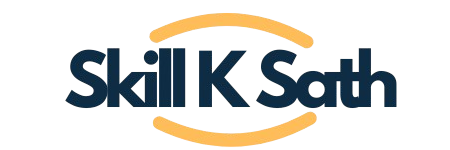How to Learn Python Like a Pro in 2025: Python is one of the most in-demand programming languages today. Its versatility in web development, data science, AI, automation, and more has made it a top choice for beginners and experts alike. If you’re looking to dive into Python in 2025, this guide will help you learn the language effectively and fast.
1. Why Learn Python in 2025?
Python is an ideal language for beginners because of its simple and readable syntax. Whether you want to build websites, analyze data, or automate tasks, Python can be used for a wide range of applications. Here’s why you should learn it in 2025:
- High Demand in the Job Market: Python skills are in high demand across industries such as technology, healthcare, finance, and education.
- Versatility: Python can be used for web development, data science, machine learning, automation, and even gaming.
- Strong Community Support: Python has a vast community that makes it easier to find help, tutorials, and libraries.
2. Get the Basics Right
Before diving into advanced Python topics, it’s essential to get a solid grasp of the basics:
- Data Types: Understand Python’s built-in data types such as integers, floats, strings, and booleans.
- Control Structures: Learn about loops (for, while), conditionals (if, else), and logical operators (and, or).
- Functions: Functions allow you to break down code into reusable chunks. Master how to write functions and use parameters effectively.
- Lists and Dictionaries: These are important data structures in Python that you’ll use regularly.
Once you have a strong foundation in the basics, you’ll be able to tackle more complex topics.
3. Focus on Real-Life Projects
One of the best ways to learn Python quickly is by working on real-life projects. This will not only help reinforce the concepts you’ve learned but also give you practical experience. Here are some project ideas:
- To-Do List Application: Create a simple command-line to-do list application to practice data storage and retrieval.
- Web Scraping: Use Python libraries like BeautifulSoup or Scrapy to scrape data from websites and learn about web scraping.
- Automation Scripts: Automate repetitive tasks like organizing files, sending emails, or gathering data from the web.
By working on real projects, you’ll see how Python can solve real-world problems and improve your coding skills.
4. Master Python Libraries
Python has a rich ecosystem of libraries that make complex tasks much easier. Some essential Python libraries to learn include:
- NumPy & Pandas: If you’re interested in data science or analysis, NumPy and Pandas will be your best friends. They help you manipulate and analyze data efficiently.
- Matplotlib & Seaborn: These libraries are used for data visualization, enabling you to create insightful graphs and charts.
- Flask & Django: For web development, Flask and Django are the most popular frameworks. Flask is lightweight, while Django is full-featured.
- TensorFlow & PyTorch: If you’re diving into machine learning or AI, these libraries are essential for building and training models.
Knowing how to use these libraries will enhance your ability to tackle various projects.
5. Use Online Learning Platforms
There are countless online resources to help you learn Python at your own pace. Some of the best platforms include:
- Udemy: Offers beginner to advanced Python courses with video tutorials.
- Coursera: Provides courses from top universities like Stanford and MIT.
- edX: Free courses from leading institutions, including Harvard and MIT.
- Codecademy: Provides an interactive learning experience to get hands-on with Python coding.
- YouTube: Channels like freeCodeCamp, Tech with Tim, and Programming with Mosh offer tutorials for beginners and advanced learners.
6. Join Python Communities
One of the best ways to learn is by engaging with others who are also learning or already proficient in Python. Communities like:
- Reddit (r/learnpython): Great for asking questions and discussing Python concepts with beginners and experts.
- Stack Overflow: Ask coding questions or browse through existing solutions to common Python problems.
- GitHub: Contribute to open-source Python projects, learn from others, and improve your coding skills.
Learning from others’ code and engaging in coding discussions will help you stay motivated and improve your skills faster.
7. Practice, Practice, Practice
As with any skill, consistency is key. Try to code every day or as frequently as possible to maintain momentum. Websites like HackerRank and LeetCode offer challenges that will help you hone your Python skills and prepare for coding interviews.
Also Read : How to Become a Web Developer in 2025: The Skills You Need to Know
8. Stay Updated with Python Trends
The tech world is constantly evolving, and so is Python. Make sure to stay updated with the latest Python trends, frameworks, and libraries. Subscribe to blogs like:
- Real Python
- Python Software Foundation Blog
- Towards Data Science (Medium)
By staying updated, you’ll be able to adapt to the latest trends in Python development and keep your skills fresh.
Conclusion
Learning Python in 2025 will set you up for success in multiple industries, from software development to data science and machine learning. Start by mastering the basics, work on real-world projects, and dive into the Python libraries that are relevant to your goals. With the right resources, community support, and dedication, you’ll be well on your way to becoming a Python pro.

